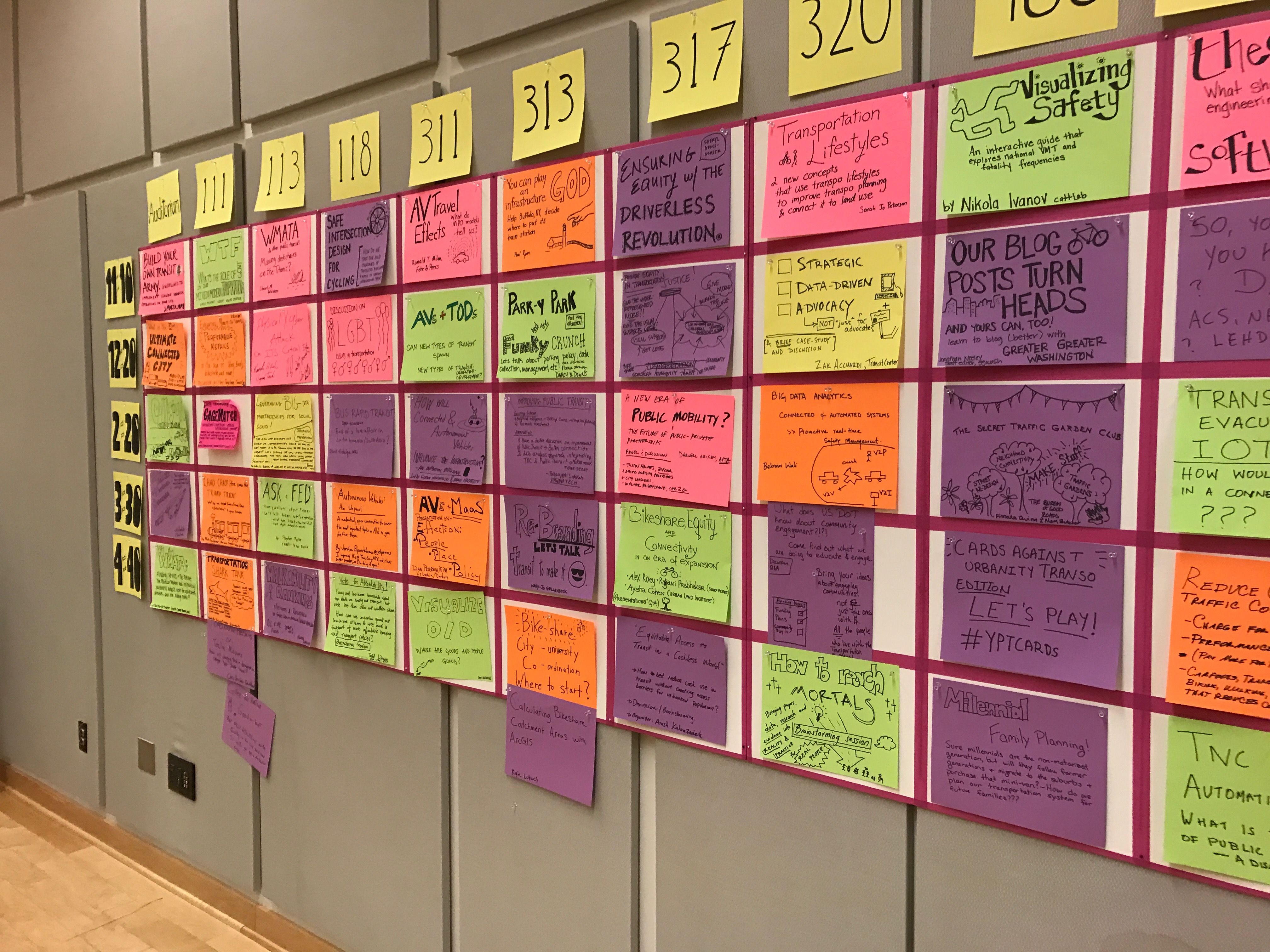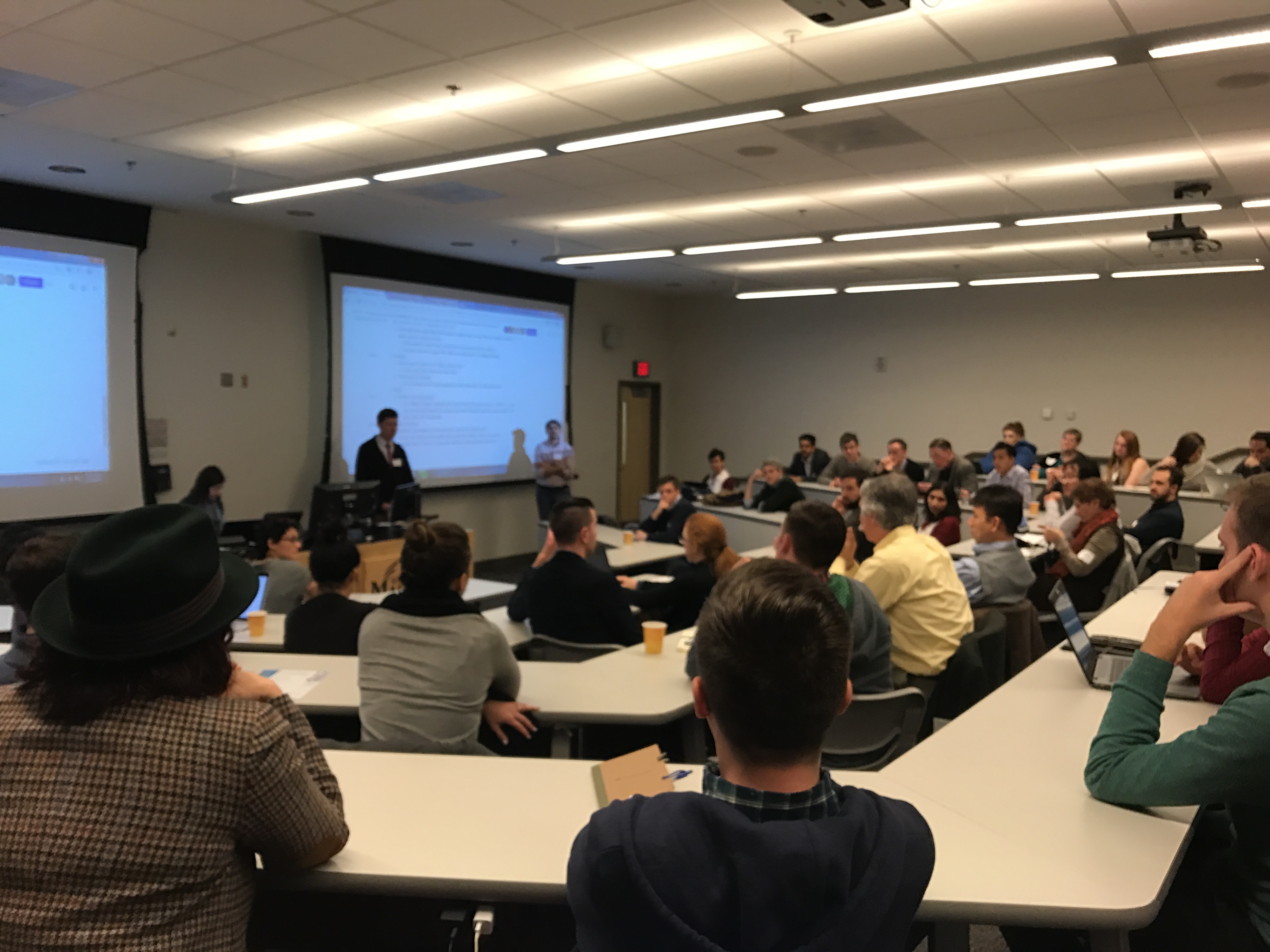January 18, 2017
The sixth annual Transportation Camp in Washington, D.C. on January 8 was a showcase of bold ideas and imaginative solutions for an industry in a constant state of rediscovery and renewal.
Transportation Camp DC attracted over 400 industry thought leaders, young professionals, and students from around the country, each with a diverse set of experiences in the public and private sectors.
It stood in stark contrast with the National Academy of Science’s Transportation Research Board (TRB) Annual Meeting, which began on the same weekend. TRB summoned a throng of 14,000 registered attendees to Washington for speeches from thought leaders, presentations on academic research, and new business opportunities.
Transportation Camp seems to have an almost quixotic quality in comparison. A collection of 400 people descended on George Mason University for an unconference – an event where every attendee is allowed to present their own ideas for improving transportation, regardless of expertise or affiliation.
Eno’s Paul Lewis kicked off the event by walking through the mechanics of Transportation Camp and asking every attendee to introduce themselves in three words. These short introductions set the tone of inclusiveness and broke down the barriers of expertise and hierarchy, allowing participants to immerse themselves in their passions rather than their day jobs.
The day was split into 5 blocks of sessions where attendees could move between the sessions that interested them. While autonomous vehicles (the perennial dreamer’s dream in transportation) were the most prevalent topic, titles varied widely from Safe Intersection Design for Cycling to What is the Ultimate Connected City? to Urban Gondolas: Could it work in the U.S.?
Asking the Big Question
Eric Plosky, Chief of Transportation Planning at the USDOT Volpe Center, led one of the liveliest discussions of the day. Plosky challenged participants to consider government’s role in the field in the aptly titled session, WTF!? What’s the role of government in a mixed & modern transportation?
As demonstrated by the quotes below, participants launched into an earnest – and sometimes contentious – discussion of the pitfalls of transportation planning, the knowledge gaps in the industry, the true utility of data, and the limits of government intervention:
On government spending and efficiency:
“When we see headlines about how much the government is spending on transportation projects, we don’t see the people behind it going to school, going to the hospital, going to work. We just see numbers.”
“The government will never be able to pay for all of our transportation needs… so it helps when the government can receive [useful] data to make informed decisions.”
“How can we thread the needle to show that we’re spending government money responsibly?”
“Even people who work ‘in transportation’ often don’t even know where money comes from [and we need to close that gap].”
On the MPO Consolidation Rule:
“[USDOT] spoke with a lot of MPOs that weren’t happy about the MPO consolidation rule. But if aliens were to come down to earth with no prior knowledge of our system, and tried to figure out our political boundaries, it wouldn’t make sense.”
On data:
“I’ve only heard booing once out of the seven times I’ve attended Transportation Camp. It was when someone’s three word introduction was: data doesn’t matter.”
“When you give your data to a tech company, you get something. When you give it to the government, what are you getting?”
“[Policy drives everything]: when we get transportation data, the government suddenly has eyes that see what it needs and see what it needs to see”
Moving Forward
Transportation Camp plays a vital role in allowing the transportation industry to explore innovative ideas and evaluate their merits from economic, political, philosophical, engineering, and planning perspectives.
These discussions are vital to the long-term health and success of a field that people interact with every day – but at the same time, solutions that are imagined have little utility for the public until they are solutions that are implemented.
If Henry Ford had stopped by imagining affordable vehicles for every American, his story would have never begun.
The convergence of transportation and technology is yielding an opportunity to capitalize on new mobility options that are more affordable, more accessible, and more equitable for every segment of our society.
There are three crucial next steps to achieving this future:
Firstly, innovators must have a space to explore new concepts in multidisciplinary discussions. This is what Transportation Camp does best.
Secondly, planners, engineers, and academics must research new approaches and demonstrate their feasibility. In this sense, Transportation Research Board is the litmus test for ideas that eventually percolate up from settings like Transportation Camp.
Finally, governments must become partners with the private sector, academia, and industry to safely test and deploy innovative approaches.





